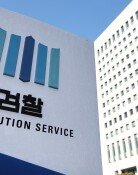North Korean Nuclear Crisis: Which Side Has More Time?
North Korean Nuclear Crisis: Which Side Has More Time?
Posted January. 24, 2004 23:27,
During the Lunar New Year holidays, there have been many new developments related to the North Korea nuclear issue.
U.S. President George W. Bush emphasized the importance of a multilateral solution in his State of the Union address. There was also a hearing in the U.S. Senate. The International Institute for Strategic Studies (IISS) published a new report, "North Koreas Weapons Programs: A Net Assessment." In addition, there was a high-level meeting in Washington D.C. attended by Korean, U.S. and Japanese officials.
Multilateral negotiations is likely gaining steam to resolve the North Korean nuclear issue that has stalled since the first six-way talks in August of last year.
International wire services reported that Richard Lee Armitage, deputy secretary of state, will visit Korea, China, and Japan in early February. He did the same shuttle diplomacy ahead of the six-way talks last year.
If the North Korean nuclear issue is not resolved soon, debate will rage on which party has more time.
Jack Pritchard, a former special envoy to North Korea who recently visited the North Korean nuclear facility in Yongbyon, in a press conference quoted Kim Gye-gwan, vice foreign minister of North Korea, as saying, Time is on our side. As time goes by, our nuclear strength becomes stronger and stronger.
Meanwhile, Deputy Foreign Minister Lee Soo-hyuck, after attending a high-level meeting with the U.S., said, Time is not on North Koreas side.
-Time is North Koreas side? The IISS emphasized the importance of an early solution and said that North Korea will have the capacity to produce enough fissile material for five to 10 warheads a year. IISS director John Chapman said, The problem is that the more protracted the diplomatic uncertainties, the greater the opportunity for uncertainties to build on the nature and extent of North Koreas weapons programs." Pritchard said in an op-ed for the New York Times, I am concerned that the next round of six-party talks will fail and Pyongyang will withdraw from the diplomatic process. It may then declare that it has developed all the nuclear weapons it needs and that it does not intend to make any more.
He said that the Bush administration should appoint a North Korean policy coordinator with the stature and integrity of former Defense Secretary William Perry for direct negotiations with the North.
Mohamed El Baradei, head of the International Atomic Energy Agency (IAEA), said in the World Economic Forum in Davos, Switzerland, Among the grave threats the IAEA is facing, North Korea is the gravest to non-proliferation as we know it today. He added, The U.S. should stop playing wait-and-see and take the initiative in negotiations.
However, in a meeting with Korean correspondents in Washington D.C., Deputy Foreign Minister Lee Soo-hyuck said, A number of conditions are not favorable with the North. He said, Time is not on their side, but on our side.
The North will be better to follow the lead taken by Libya and disclose all its nuclear programs, he added. If the North unconditionally explains its position at the next round of six-way talks, its suggestions would be discussed candidly.
maypole@donga.com leej@donga.com



![“한동훈, 정치생명 걸고 무소속 출마해 평가받는 것 고려할만”[정치를 부탁해]](https://dimg.donga.com/c/138/175/90/1/wps/NEWS/IMAGE/2026/01/19/133186982.1.jpg)


![[한규섭 칼럼]왜 여당 지지율은 떨어지지 않는가](https://dimg.donga.com/c/138/175/90/1/wps/NEWS/IMAGE/2026/01/19/133189257.1.png)
